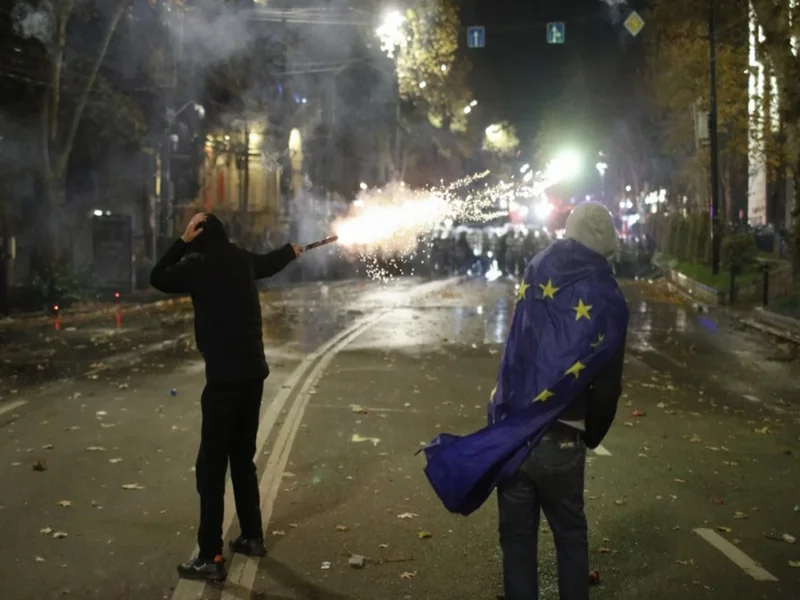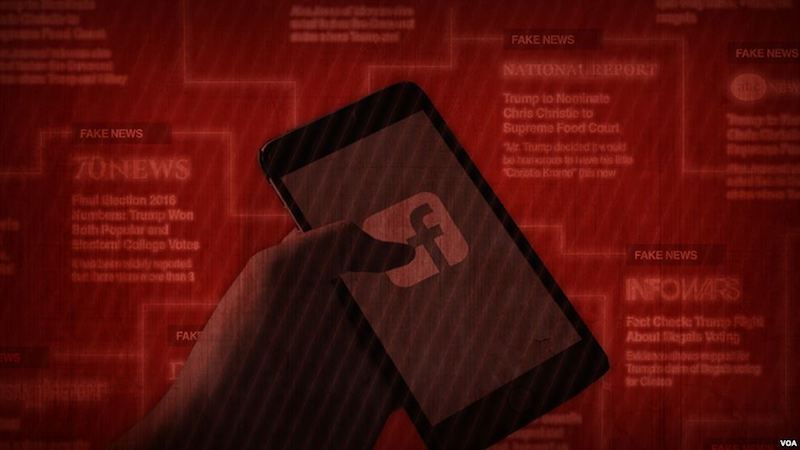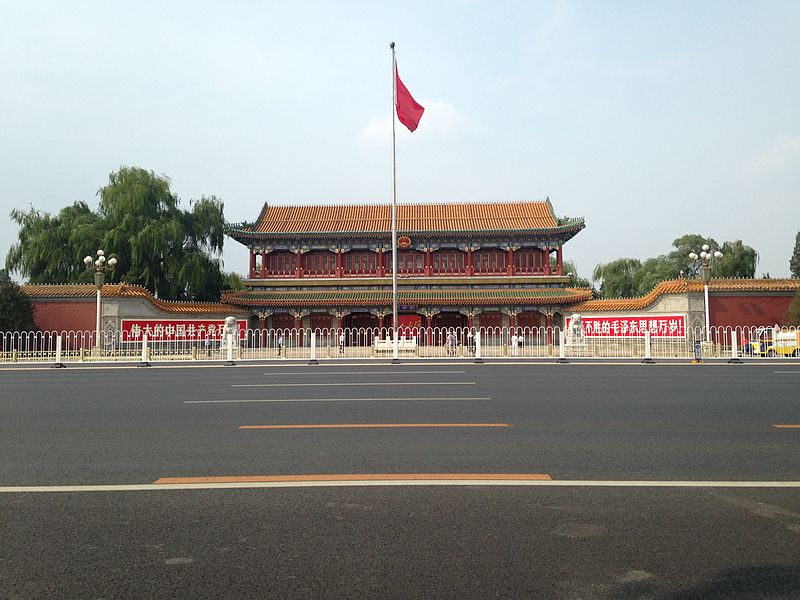In October 2024, the Black Sea state of Georgia held a heavily disputed parliamentary election. Foreign policy dominated pre-election discourse among parties. For both the current ruling party and the various parties making up the opposition, the future of relations with the European Union (EU), NATO, and Russia were at the center of the discussion. Voters’s choice in the election would serve as a referendum on Georgia’s geopolitical future.
At the centre of Georgian domestic politics are two parties —- the United National Movement (UNM) and the Georgian Dream Party. They consider each other enemies, and hold vastly different ideas towards what Georgia’s geopolitical alignment should look like. During the time that UNM was in power, the August 2008 Russo-Georgian War took place. Russia captured 20% of Georgia’s sovereign territory, leaving a legacy of instability that still dominates Georgia’s domestic and foreign policy discourse. Georgian Dream came to power in 2012. For the first year, they were led by Bidzhina Ivanshvili, a billionaire with deep Russian ties, who remains the party’s key benefactor behind the scenes. Although they claim to support Georgia’s push for EU and NATO membership, the foreign policy actions they take have put Georgia on the path towards closer Russian ties instead.
Georgian Dream once again claimed victory in the October 2024’s election. Their campaign messaging focused on the threat of another Russian invasion occurring; a very real fear for most Georgians even in the present day. Since, Georgian Dream leadership has realigned their domestic and foreign policies with Russian interests in the Caucasus region. In one of the most blatant examples of Georgian Dream’s more permissive approach to Russia, the government decided to halt Georgia’s European Union integration process on November 28th, 2024. In response, tens of thousands of protesters flooded Rustaveli Avenue, calling for new parliamentary elections. Riot police met them with serious human rights abuses — namely; mass violence, arrests, and torture once in custody. At the same time, the government has used these protests as an opportunity to crack down on dissent within civil society.
Georgian state-aligned media and government institutions have also weaponized dis- and mis- information to target protesters, oftentimes with Kremlin backing. In recent weeks, dis- and mis- information against protestors has worsened due to the global shutdown of the U.S. Agency for International Development (USAID) democracy and governance programs. The loss of programs supporting democratic development, the rule of law, and combatting disinformation in Georgia has created an opening for Georgian Dream to renew crackdowns on remaining opposition groups. Moreover, Elon Musk, head of the Department of Government Efficiency, has publicly promoted the idea that USAID worked for regime change in Georgia. Once a fringe conspiracy, Georgian Dream’s Global War Party narrative has now been legitimized by senior U.S. government officials. Now left without strong American backing, Georgia’s opposition stands alone on the frontlines of Russia’s covert war against the West.
Young protesters of university age have borne the brunt of state brutality —- both in the physical world and online information space. In the following interview, I sat down with Salome Gogebashvili, a student from Ivane Javakhishvili Tbilisi State University. Salome found herself at the center of an online disinformation campaign after being attacked during a protest. While in front of the Georgian Parliament, she was struck in the head with a rock by riot police patrolling the area. After being injured, Salome posted a picture of herself in the protest movement’s main Facebook group “Daitove.” Far-right, pro-Russian X accounts found her name and LinkedIn through this Facebook post. After seeing that she had previously been an intern at the United States Embassy in Georgia, they accused her of working to destabilize Georgia on behalf of Western interests. Other young Georgians who protest and are vocal about their views online have been targeted similarly.
“GP: After being injured by riot police at a demonstration and it being documented online, disinformation began to spread regarding your previous internship at the United States Embassy in Georgia. [These narratives] accused you of being an American-controlled actor trying to destabilize Georgia on behalf of a foreign power. What was it like to be the target of online disinformation narratives?
SG: When I first saw my picture on X, I found it funny that people actually believed these accusations. When the picture went more viral, however, and more people were reposting it, I started to feel scared. It was a feeling of uncertainty — that I was all alone in fighting against this. I made an X account and tried to reply to every threat that I could to tell the truth. I am Georgian, born and raised in Georgia. I was just an intern [at the embassy]. An internship does not mean I’m an agent of anybody. It was mostly Russian and Chinese accounts saying I was an agent operating from the West. However, far-right accounts from France, Italy, and other Western countries were also sharing these narratives.
GP: Do you know of other young Georgians who protest and have faced similar accusations as yourself?
Most of us were targeted by trolls. Under every post we shared, pro-government media and government supporters shared our posts with disinformation about our movement. Protesters who were extremely active on social media faced the most consequences from the police. Aside from aggression, police came to the houses of many and conducted searches without warrants. Overall, many people were treated this way, proving anyone could become a target of [pro-regime] misinformation and manipulation.
In comparison, on the day I was injured and my picture was put on social media, riot police were throwing rocks at protesters. Aside from me, many women of all ages ended up in the hospital with eye injuries that came close to blinding them. However, most of them did not have notable social media presences, so they faced less continued repression after the incident.
GP: What do you think was the larger purpose behind the disinformation targeting you and other protestors?
SG: I think it was a means both to scare individual people, while also spreading disinformation about them to kill the momentum of the protest movement. From the end of November into the start of December, us protesters were very active. At times, there were more than 50,000 of us in the streets. As a result of this we faced significant aggression from riot police and the government.
At the same time, disinformation narratives were being spread claiming that the West was trying to drive protesters to cause another Maidan in Georgia, like in Ukraine. I would say this was being done to slow us down. When you are focused on fighting trolls on social media, you do not have as much time to go out to the actual protests themselves. More than that, when you feel threatened online it also makes you believe you could be a target in the physical world. However, in the long-term, their threats had the opposite effect. They ended up driving more people to come out and protest.
GP: Do you think protesters have been able to use social media effectively to advocate for and raise awareness of their cause and make people around the world more aware of what’s going on?
SG: Of course. Digital activism has become a key driver of civic activism in Georgia. Starting from May [2024] when they reintroduced the law on foreign agents, social media became very active. People created a new Facebook group called Daitove, meaning “Let’s Keep.” It was for finding shelter for people coming from the regions to Tbilisi to protest. [Daitove] ended up creating a whole new community for the opposition. On Election Day, people used Daitove to document wrongdoings and violations of the electoral process occurring throughout the country. After the election, people started using this group and Facebook more generally as the first tool of mobilization. People would gather on Facebook to post about upcoming protests. Any ordinary citizen could post “tomorrow, I’m going to Rustaveli Avenue. Who’s coming with me?” and know that they could get tens of thousands of people to come with them.
Overall, Facebook groups became a massive tool for us to fight against misinformation and disinformation coming from government propaganda. I don’t think the protests would be going on for as many days as they have been without social media. However, when the government started to see how Facebook was helping our cause, they cracked down. We have since had to move to Signal.
GP: Do you think that these processes and organizational tools on social media that you’ve mentioned have been helpful in countering foreign dis- and mis- information?
SG: Most of the foreign dis- and mis- information targeting the Georgian protests was on X. Georgians don’t really use X, as we prefer Facebook. As a result, our presence combating it there was not really felt. If we had been more active on X it likely would have helped in stopping it from getting out of control.
I don’t know if you’ve seen it, but Georgia showed up in a video posted by Elon Musk. It accused the United States of financing protests in Georgia. It was so sad to see this, because it completely misrepresented how the funding we received was actually used. No [foreign actor] was financing the protests. Georgian people were helping each other and sharing funds to keep the protests going. It was mostly emergencies. When I had to go to the hospital, I did not have to pay a dime for my surgery because of donations from other Georgians.
GP: What message would you give to young people in the West who may not understand the need to fight for democracy as directly as young protesters in Georgia do?
SG: Democracy is never a guarantee. The moment you stop fighting for it is the moment authoritarianism starts to rise. My generation in Georgia has always known this. Ever since we were born, we have known that institutions can fail. We have had to fight in the cold and in the heat to remind our government that we are here, that they listen to us, and that we demand a democratic future. So, the last thing I would say to young people in the West is to love your country and not let anybody take it away from you. If you slip up and take it for granted, it is extremely hard to take it back.”
Georgian history has been defined by periods of fierce resistance to Russian rule; the response of young Georgians in the present moment is no different. At the time of publication, Georgia’s protests have now gone on for over one hundred and fifty days.
If left unchecked, the weaponization of dis- and mis- information against citizens in Georgia’s current crisis will have ramifications that extend to NATO member states. Russian shaping of campaign narratives in Georgia’s October 2024 election may have been the testing ground for Russian influence operations in the elections of NATO member states. As such, Salome’s interview serves as a warning to young people in NATO member states. Russian dis- and mis- information is not limited to Georgia. It is part of a larger global fight for democracy against rising autocratic powers — something every young person in the West must concern themselves with to prevent authoritarianism in their own countries from starting to rise.
Any views or opinions expressed in articles are solely those of the authors and do not necessarily represent the views of the NATO Association of Canada.
Credit: 43 protesters arrested at pro-EU rally in Georgia (2024) via. Free Malaysia Today. Licensed under CC BY 4.0.





